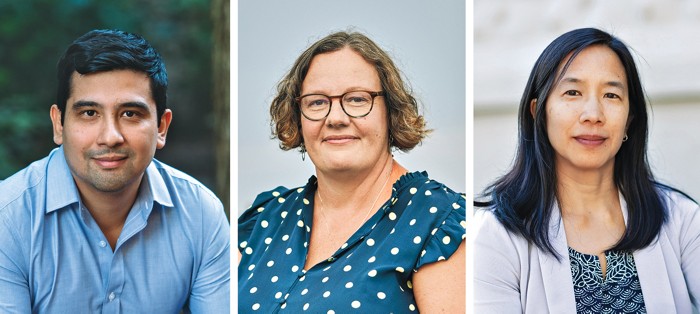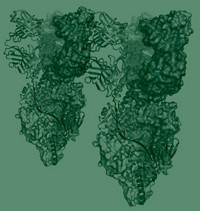Advertisement
Grab your lab coat. Let's get started
Welcome!
Welcome!
Create an account below to get 6 C&EN articles per month, receive newsletters and more - all free.
It seems this is your first time logging in online. Please enter the following information to continue.
As an ACS member you automatically get access to this site. All we need is few more details to create your reading experience.
Not you? Sign in with a different account.
Not you? Sign in with a different account.
ERROR 1
ERROR 1
ERROR 2
ERROR 2
ERROR 2
ERROR 2
ERROR 2
Password and Confirm password must match.
If you have an ACS member number, please enter it here so we can link this account to your membership. (optional)
ERROR 2
ACS values your privacy. By submitting your information, you are gaining access to C&EN and subscribing to our weekly newsletter. We use the information you provide to make your reading experience better, and we will never sell your data to third party members.
Awards
2023 MacArthur Fellows include a molecular biologist, an environmental ecologist, and an environmental engineer
Researchers who study gene expression, the carbon cycle, and air quality awarded ‘genius grants’
by Bethany Halford
October 12, 2023
| A version of this story appeared in
Volume 101, Issue 34

Molecular biologist Jason Buenrostro of Harvard University, environmental ecologist Lucy Hutrya of Boston University, and environmental engineer Linsey Marr of Virginia Tech are among the 20 people selected as 2023 MacArthur Fellows. The recipients of these so-called genius grants from the John D. and Catherine T. MacArthur Foundation will each receive $800,000 over 5 years “to pursue their own creative, intellectual, and professional inclinations” with “no strings attached,” according to the foundation’s website.
Buenrostro studies the mechanisms that regulate gene expression. He recently developed DNA sequencing methods that inform how cells function according to their location within tissues and helped find a way to zero in on genetic mutations in cancer cells. This information can help scientists understand how cancer cells evolve as they metastasize or become resistant to drugs.
Hutyra investigates how urbanization affects carbon cycle dynamics. Her work has shown that the surroundings of plant and soil ecosystems influence how they absorb carbon and suggests that urban forests are important for mitigating the effects of climate change.
“A lot of my work has focused on solutions and has tried to be tractable with what cities and individuals and communities could actually try to do to improve their livability,” Hutyra says.
Marr examines air quality and bioaerosols. Her work on the respiratory droplets that carry airborne pathogens, such as influenza and SARS-CoV-2—the virus that causes COVID-19—helped show how relative humidity changes these viruses’ stability. She was among the first to show how small aerosols transmit viruses in indoor air.
Marr says the fellowship money will help her pursue projects “that would have been hard to get funding for through traditional mechanisms because they’re too risky or too interdisciplinary or too applied.”





Join the conversation
Contact the reporter
Submit a Letter to the Editor for publication
Engage with us on Twitter